In the thousands of years of history of the Chinese nation, not only many great statesmen, thinkers, artists and scientists have emerged, but also many outstanding military strategists and generals. They used their courage and strategy to achieve brilliant achievements in wars big and small: some were born in troubled times and achieved great achievements in the flames of war; some were ordered in danger and made outstanding contributions to the reunification of the motherland; some In resisting foreign aggression, it showed a lofty spirit of patriotism.
The top ten famous chinese generals in history are these:
1. Xiang Yu 项羽
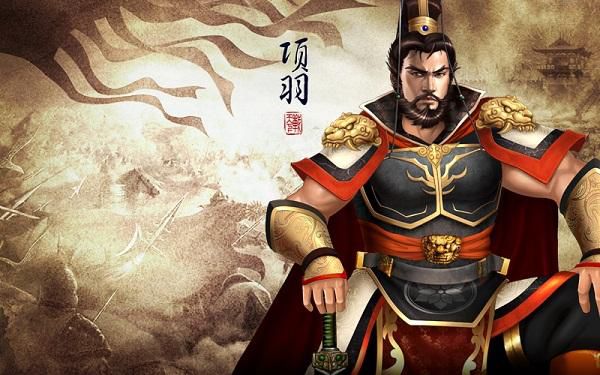
In the battle of Gaixia, with 100,000 troops against Han Xin’s 500,000, it is not a crime of war;
However, his strategic mind is too problematic. Although he is not mentally retarded, at least he is not far from ordinary people. Therefore, Hanniba is known as the father of Western strategy, as famous as his grandson, while Xiaoxiang was relegated to the folks as a model of reckless husbands, similar to Lu Bu.
Height: 1.89 meters tall. Birthplace: Xiaxiang (now Suqian, Jiangsu)
Old capital: Xuzhou (known as Pengcheng in ancient times), where he grew up when he was young and where he started his army: Wuzhong, Kuaiji County (now Suzhou)
Wife: Song Ning
Father: Xiang Chao
Mother: Long’s
Love Ji: Yu Ji’s son: Xiang Long (this character is controversial, in the old version of “Xiang’s Genealogy”, Xiang Long is the grandson of Xiang Zhuang and the second son of Xiang Ming, not the son of Xiang Yu, and there is no Xiang Huan, Xiang Di, these two people).
Mount: Kicking Cloud Wuxian (a blue-white horse with black hair) Weapon: Chu Halberd (in Romance, it is Tiger Head Coiled Dragon Halberd, one or Tianlong Breaking the City Halberd) Armor: Wujinjia (add Wujin in the forging to strengthen the solidity, Wujin The armor is black), and the tiger skin red shirt features: Chinese history records record that Xiang Yumu has double pupils.
Xiang Yu’s invincibility on the battlefield is opposite to his political naivety, killing prisoners of war, abandoning Guanzhong, missing the state of Chu, banishing Emperor Yi, and proposing himself as a king but losing the hearts of the people. The more prominent performance is in the aspect of employment. Liu Bang’s subordinates Xiao He, Zhang Liang, Han Xin, Peng Yue, and Ying Bu had different backgrounds but could make the best use of their strengths, but Xiang Yu couldn’t even use Fan Zeng. Xiang Yu and Liu Bang formed a sharp contrast. Later, the destruction of Soochow in the Three Kingdoms era also showed from the side that when there was only Jiangdong left in the world, Jiangdong could not be resisted. According to the words of Mr. Wang Liqun of Henan University, “Xiang Yu is a very useful person, but he is sitting in the position of a person who employs people.” This is Xiang Yu’s sorrow. Soldier genius, political idiot. But political failures could not conceal Xiang Yu’s military talents. At the age of 22, he rebelled against Qin. At the age of 27, he became the overlord of Western Chu, who was divided into eighteen princes. At the age of 30, he committed suicide on the Wujiang River.
He is a well-deserved hero. In Chinese history, there are countless heroic figures. But there are very few men who are iron-blooded and tender-hearted like Xiang Yu. Surrounded by ten thousand armies, even the embattled man could not defeat this iron-boned man. The vertical and horizontal roars on the battlefield, but in the face of Yiren are tender and piercing. Heroes like Xiang Yu are well-deserved and admired by future generations.
2. Huo Qubing 霍去病
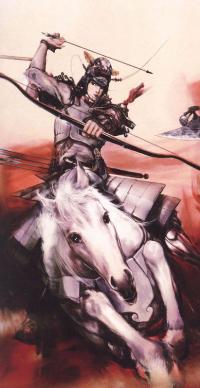
He is flexible in his use of troops, pays attention to strategy, does not stick to ancient methods, is brave and decisive, wins every battle, and has won the trust of Emperor Wu. Together with Wei Qing, they are known as the twin jades of the empire. And left behind “the Xiongnu has not been destroyed, why should the family be”. He led troops to attack the Xiongnu four times in his life, and returned to the division with great victories. For the entire world military history and Chinese history, Huo Qubing is a legend that shines through the ages.
3. Wei Qing 卫青
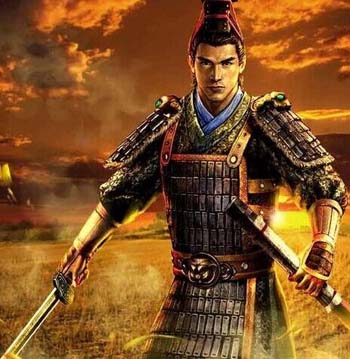
Wei Qing led troops to attack the Huns seven times in his life. Dare to go deep in the military, and be good at it; be strict with the generals, share the joys and sorrows with the soldiers; always fight bravely and fight for the first place, and the generals and soldiers are willing to serve for them; be cautious in life and obey the law. After the Mobei War, he did not go out again.
Wei Qing is worthy of being an outstanding general of the Western Han Dynasty, and it is very appropriate for Sima Guang to comment on him as “a handsome general” and “so every time he goes out, he has meritorious deeds”. His strategic and tactical achievements can be summarized as: being good at organizing offensive campaigns of cavalry groups in the desert steppe; good at exploiting the specialties of cavalry, carrying out long-range raids, capturing fighter planes and encircling and destroying the enemy. Before this, no one of the famous Han generals had commanded such a huge and successful campaign in the desert steppe. Wei Qing’s use of strategies and tactics is extremely creative.
4. Ban Chao 班超
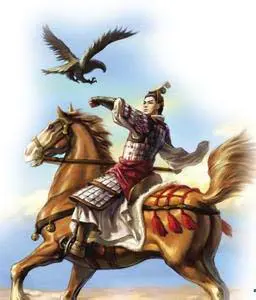 The expert who fights with war.The originator of the barbarian policy (but much better than his later followers).Probably the most hated historical figure for Xinjiang separatists.Ban Chao (32-102), courtesy name Zhongsheng, was a famous general and diplomat of the Eastern Han Dynasty. Fufeng Anling (in today’s Xianyang, Shaanxi) people. Ban Biaozi, Ban Gudi. In the sixteenth year of Yongping (73 years), from Dou Gu to attack the northern Xiongnu, Xuan was ordered to lead thirty-six officials and officials to the Western Regions. He attacked and killed the envoys dispatched by the Huns in Shanshan and Khotan, abolished the Shu-invasion King Shule who was attached to the Huns, and consolidated the Han rule in the Western Regions. In the third year of Jianchu (78), he led Shule, Khotan and other national troops to defeat the invasion of Gumo (now the area of Aksu, Xinjiang), and sent troops to pacify the Western Regions. From the first year of Zhanghe (87) to the sixth year of Emperor Yongyuan (94), Ban Chao successively pacified Shache, Qiuci (in today’s Kuqa area of Xinjiang), Gumo, Yanqi and other countries, and the Western Regions were pacified. With merit, he served as the Protector of the Western Regions, and he was named Marquis of Dingyuan. In the ninth year, Gan Ying was sent as an envoy to Daqin (the Roman Empire), and he arrived at the western border of Anxi. Ban Chao has been active in the Western Regions for 31 years, pacifying civil strife, defending against strong enemies outside, protecting the security of the Western Regions and the smooth flow of the Silk Road.
The expert who fights with war.The originator of the barbarian policy (but much better than his later followers).Probably the most hated historical figure for Xinjiang separatists.Ban Chao (32-102), courtesy name Zhongsheng, was a famous general and diplomat of the Eastern Han Dynasty. Fufeng Anling (in today’s Xianyang, Shaanxi) people. Ban Biaozi, Ban Gudi. In the sixteenth year of Yongping (73 years), from Dou Gu to attack the northern Xiongnu, Xuan was ordered to lead thirty-six officials and officials to the Western Regions. He attacked and killed the envoys dispatched by the Huns in Shanshan and Khotan, abolished the Shu-invasion King Shule who was attached to the Huns, and consolidated the Han rule in the Western Regions. In the third year of Jianchu (78), he led Shule, Khotan and other national troops to defeat the invasion of Gumo (now the area of Aksu, Xinjiang), and sent troops to pacify the Western Regions. From the first year of Zhanghe (87) to the sixth year of Emperor Yongyuan (94), Ban Chao successively pacified Shache, Qiuci (in today’s Kuqa area of Xinjiang), Gumo, Yanqi and other countries, and the Western Regions were pacified. With merit, he served as the Protector of the Western Regions, and he was named Marquis of Dingyuan. In the ninth year, Gan Ying was sent as an envoy to Daqin (the Roman Empire), and he arrived at the western border of Anxi. Ban Chao has been active in the Western Regions for 31 years, pacifying civil strife, defending against strong enemies outside, protecting the security of the Western Regions and the smooth flow of the Silk Road.
Ban’s three fathers and sons
Ban Biao, Ban Gu and Ban Chao are the three fathers and sons of the Ban family. Ban Biao, courtesy name Shupi, was a historian of the Eastern Han Dynasty. In the early Eastern Han Dynasty, he was appointed Xu Ling, but was relieved of office due to illness. He devoted himself to historiography, and based on the historical facts recorded in the “Historical Records”, it ended in the early years of Emperor Wu of the Han Dynasty. Biao also made great achievements in writing fu, theories, books, records, and memorials, and his fame was passed down from generation to generation.
5. Sun Bin 孙膑
Sun Bin, a famous military strategist during the Warring States Period, descended from Sun Wu. People from Qi Guo’a (now northeast of Yanggu, Shandong) and Juan (now north of Juancheng). The main activities were during the period of King Wei of Qi.
In the early years, he and Pang Juan learned the art of war from Guiguzi. After Pang Juan became Wei general, he was jealous of Sun Bin’s talent and deceived him to Wei. Later, he fled to the state of Qi and became a disciple of Tian Ji. He helped Tian Ji win the horse race and was recommended to King Wei of Qi. At that time, King Wei was planning to compete with Wei, and for this reason, he recruited talents, paid great attention to Sun Bin’s military talents, and appointed him as a military advisor. In the fifteenth year of King Xian of Zhou (354 BC), King Hui of Wei ordered Pang Juan to lead an army to surround Handan (now Hebei), the capital of Zhao, because of Zhao’s attack on Wei’s national defense. The following year, Zhao asked Qi for help, and Qi sent 80,000 troops to rescue Zhao. Sun Bin had no prestige when he first arrived in Qi, and he was alert to Pang Juan, so he only took command as a military division. In response to the absence of Wei Qiang’s troops, Daliang, the capital of Wei (now Kaifeng, Henan), was in a state of emptiness in defense, and adopted the tactics of “criticism and tampering with emptiness”, and attacking him must be rescued. He went straight to Daliang, forcing Pang Juan to rush back to rescue, and intercepted at Guiling (now northwest of Changyuan, Henan) on his way back to the army. Battle of Guiling). In the twenty-seventh year, Wei attacked Han again because Han contacted Qi and Song and did not go to the meeting in Fengze (now Kaifeng South). Han asked Qi for help. Qi once again led the army to save Han with Tian Ji (one said Tian Ji) and Sun Bin, and still attacked the Wei capital Daliang by attacking them. However, the Wei army wanted to completely wipe out the Qi army and pursued it closely. Sun Bin took advantage of the situation to deceive Pang Juan with the method of reducing the stove day by day, tempting him to abandon the main infantry and only chase with light chariots and sharp soldiers. In Maling (now southwest of Fan County), he defeated the Wei army, killed Pang Juan (say suicide), and captured Wei Prince Shen (see the Battle of Maling).
In 1972, the bamboo slips “Sun Bin’s Art of War” unearthed from the Han Tomb in Yinqueshan, Linyi, Shandong Province, reflected Sun Bin’s military thinking. He believes that there are certain laws in war; in terms of strategy and tactics, “potential” is valued, that is, taking the initiative and advantage according to certain conditions; breaking through the theory of quick battle and quick decision of predecessors, and putting forward the idea of protracted warfare; adapting to the economic development of the Warring States Period, emphasizing offensive He believed that only by overthrowing the army and killing the generals would be a complete victory, and created the theory of annihilation warfare; the use of vehicle barriers in field battles, the study of formation methods, and the necessary conditions for generals were all elaborated.
6. Wei Rui 韦睿
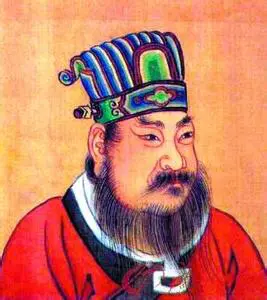 Wei Rui (AD 442-520), courtesy name Huaiwen, was a famous general during the reign of Emperor Wu of the Liang Dynasty in the Southern Dynasty. Originally from Jingzhao Duling (now southeast of Xi’an), his great-grandfather moved to Xiangyang. In the Song Dynasty, he was the general of the Right Army and the general of the Fuguo. The command is decisive and strategic.
Wei Rui (AD 442-520), courtesy name Huaiwen, was a famous general during the reign of Emperor Wu of the Liang Dynasty in the Southern Dynasty. Originally from Jingzhao Duling (now southeast of Xi’an), his great-grandfather moved to Xiangyang. In the Song Dynasty, he was the general of the Right Army and the general of the Fuguo. The command is decisive and strategic.
In the fourth year of Liang Tianjian (AD 505), Wei Rui oversaw the Northern Expedition, attacked the Northern Wei Xiaoxian City (now Hefei East), and then marched into Hefei. Wei general Yang Lingyin came with 50,000 troops, but Liang’s army was afraid of losing and asked for more troops. Wei Rui believes that the soldiers and nobles are not in the same group, and they should fight quickly. Then they formed an array, and when the enemy was approaching, they commanded a fierce charge to defeat the Wei soldiers. Hefei City was flooded with fertilizer and water from the Weir, and high warships were used to besiege it. Strong crossbows were fired. The Wei army was crushed.
In the fifth year of Liang Tianjian (AD 506), Wei Zhongshan Wang Yuanying led hundreds of thousands of troops to surround Zhongli. Wei Rui and the right guard general Cao Jingzong were ordered to rescue and lead the army into Shaoyang Prefecture. Immediately in front of the enemy camp, he built a fort overnight, and fought fiercely for a whole day, defeating the Wei army several times. When the Huai River surged, he sent his generals to carry grass in small boats, anointed them with ointment, set fire to the enemy’s bridge, and sent daring men to fight. Under the general attack of Liang Jun, the Wei army was defeated, and more than 100,000 were drowned and killed, and 50,000 were captured. Wei Rui became a marquis due to his merits and served as a general of the Youwei.
Mao Zedong said in his commentary on Li Yanshou’s “Southern History” Volume 58 “The Biography of Wei Rui”: “(Wei Rui) dared to use tens of thousands to defeat millions, and he had the style of Liu Xiu and Zhou Yu”, praising him for his ability to fight and good investigation. Research; praise him for his open-mindedness and generosity, and his ability to unite cadres; praise him for his good style, modesty and simplicity, honesty and self-restraint, etc., and think that “our party cadres should learn Wei Rui’s style”.
7. Zhou Yu 周瑜
Young, capable, handsome, suave, a heartthrob.
His record is similar to Wei Rui, but his life is too short and he has too few things to do.
Zhou Yu, born in 175 AD and died in 210 AD, was a general of Eastern Wu. The name is Gongjin, and he was from Lujiangshu (now southeast of Lujiang in Anhui). He was born in a family of officials, handsome in appearance, intelligent and resourceful, known as Zhou Lang. After Sun Ce’s death, he and Zhang Zhao jointly assisted Sun Quan and served as the Grand Governor. In the thirteenth year of Jian’an (AD 208), with the help of Zhuge Liang, Wu and Shu joined forces to set fire to Chibi, smashing Cao Jun, and becoming famous in China. Later, when he entered Nanjun, he was shot and wounded by Cao Ren’s ambush. He has a small amount of human tools and is vicious and vicious. Seeing that Zhuge Liang is smarter than himself, he will make plots everywhere. After being provoked by Zhuge Liang three times, he died of arrow sores.
In the official history, Zhou Yu was “a great personality” and “a real genius”, and Fan Chengda praised him as “a heroic hero in the world, and Jiang Zuo’s romantic and beautiful husband”. Song Huizong respected him as Pinglupu. Ranked among the sixty-four generals of Tangwu Temple and one of the seventy-two generals of Songwu Temple.
8. Xu Da 徐达
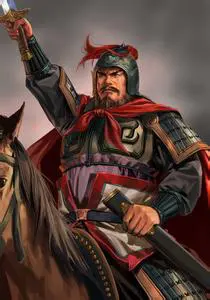 The first host in Chinese history to fight from Nanjing to Beijing.Yue Fei’s confidant from another world, but unfortunately he didn’t succeed in attacking Huanglong. He was defeated and ended up with Yue Wumu. It’s sad.Xu Da (1332-1385) was the military commander of the founding of the Ming Dynasty in China. The word Tiande was born in Haozhou (now Fengyang, Anhui). In the thirteenth year of Yuan Zhizheng (1353), he participated in the peasant uprising army. Because of his wisdom and courage, he was above the generals. In the fifteenth year, he crossed the Yangtze River from Zhu Yuanzhang, took Taiping (now Dangtu, Anhui), and Kejiqing (now Nanjing). Then he led his troops to capture Zhenjiang (now Jiangsu) and other places, made contributions to the development of the Jiangnan base, and was awarded the Huaixing wing commander of the army. In the autumn of the 23rd year, in the battle of Poyang Lake, he took the lead in leading the generals and charged into the battle, defeating the vanguard of Chen Youliang’s army. In the twenty-fourth year, he was promoted to Zuo Xiangguo due to his merits. In the twenty-five years, he led the army with the generals to the expedition, first occupying Huaidong, following the Pingxi West, and winning even battles. In September of the twenty-seventh year, he captured Pingjiang (now Suzhou, Jiangsu) and captured Zhang Shicheng and his 250,000 soldiers. In October of the same year, he led a division of 250,000 to the north, took Shandong first, then moved to Henan, and then led his army to conquer Dadu (now Beijing), destroying the Yuan Dynasty. In the early Ming Dynasty, he led the army to expedition to Mobei and other places many times, guarding the frontier, and was praised by Zhu Yuanzhang as the “Great Wall of Ten Thousand Miles” (“Ming Taizu Record” vol. 171).
The first host in Chinese history to fight from Nanjing to Beijing.Yue Fei’s confidant from another world, but unfortunately he didn’t succeed in attacking Huanglong. He was defeated and ended up with Yue Wumu. It’s sad.Xu Da (1332-1385) was the military commander of the founding of the Ming Dynasty in China. The word Tiande was born in Haozhou (now Fengyang, Anhui). In the thirteenth year of Yuan Zhizheng (1353), he participated in the peasant uprising army. Because of his wisdom and courage, he was above the generals. In the fifteenth year, he crossed the Yangtze River from Zhu Yuanzhang, took Taiping (now Dangtu, Anhui), and Kejiqing (now Nanjing). Then he led his troops to capture Zhenjiang (now Jiangsu) and other places, made contributions to the development of the Jiangnan base, and was awarded the Huaixing wing commander of the army. In the autumn of the 23rd year, in the battle of Poyang Lake, he took the lead in leading the generals and charged into the battle, defeating the vanguard of Chen Youliang’s army. In the twenty-fourth year, he was promoted to Zuo Xiangguo due to his merits. In the twenty-five years, he led the army with the generals to the expedition, first occupying Huaidong, following the Pingxi West, and winning even battles. In September of the twenty-seventh year, he captured Pingjiang (now Suzhou, Jiangsu) and captured Zhang Shicheng and his 250,000 soldiers. In October of the same year, he led a division of 250,000 to the north, took Shandong first, then moved to Henan, and then led his army to conquer Dadu (now Beijing), destroying the Yuan Dynasty. In the early Ming Dynasty, he led the army to expedition to Mobei and other places many times, guarding the frontier, and was praised by Zhu Yuanzhang as the “Great Wall of Ten Thousand Miles” (“Ming Taizu Record” vol. 171).
Xu Da was good at strategy, he managed the army strictly, and his military exploits were outstanding, ranking first among the heroes. Ming Hongwu died in February of the eighteenth year, and was posthumously named Zhongshan King.
9. Guo Ziyi 郭子仪
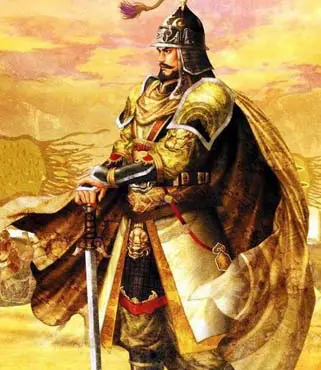 The most outstanding practitioner of the theory of “subduing soldiers without fighting” in ancient Chinese history.Guo Ziyi was a famous military strategist in the Tang Dynasty. Born in Wuju, he is more than six feet tall, that is, his current body is over one meter eight, and he is very brave. When the An-Shi Rebellion broke out, he was the military governor of Shuofang and defeated Shi Siming in Hebei. Later, the deputy marshal led the Tang army and Huihe and other reinforcements to recover Luoyang and Chang’an. During the reign of Emperor Zong, the traitor Pu Gu Huaien seduced the Tubo and Huihe to invade the Guanzhong area. Guo Ziyi correctly adopted the strategy of forming an alliance with the Huihe and attacking the Tubo, thus safeguarding the peace of the country. Guo Ziyi has made great achievements in his entire life, and only bid farewell to the battlefield at the age of 84.
The most outstanding practitioner of the theory of “subduing soldiers without fighting” in ancient Chinese history.Guo Ziyi was a famous military strategist in the Tang Dynasty. Born in Wuju, he is more than six feet tall, that is, his current body is over one meter eight, and he is very brave. When the An-Shi Rebellion broke out, he was the military governor of Shuofang and defeated Shi Siming in Hebei. Later, the deputy marshal led the Tang army and Huihe and other reinforcements to recover Luoyang and Chang’an. During the reign of Emperor Zong, the traitor Pu Gu Huaien seduced the Tubo and Huihe to invade the Guanzhong area. Guo Ziyi correctly adopted the strategy of forming an alliance with the Huihe and attacking the Tubo, thus safeguarding the peace of the country. Guo Ziyi has made great achievements in his entire life, and only bid farewell to the battlefield at the age of 84.
Guo Ziyi has made extraordinary achievements in his military life, but he has never been proud of his achievements.
The higher Guo Ziyi’s merit is, the more people respect him. Tubo and Huihe called him a god. The emperor didn’t even call him by his first name. Even some An Shi rebels respected him because he had been kind to many people. After An Qingxu’s general Tian Chengsi occupied Weizhou, he was arrogant and domineering. Guo Ziyi sent one of his own officers to see him. Tian Chengsi was very well behaved. He even looked in the direction of Guo Ziyi and bowed. He pointed to his knees and said to the messenger, “My knees have not been kneeling to others for many years. Now I have to kneel for Guo Gong.” He said. The dozens of old generals under his command were all nobles and nobles. Guo Ziyi ordered them to advance and retreat. They were like slaves, obeying his arrangements and commands.
On June 14 (July 9), the second year of Jianyuan (781), Guo Ziyi passed away at the age of 85. Emperor Dezong mourned deeply, abolished the dynasty on the 5th, and issued an edict that he highly praised and remembered him. According to the laws and regulations, the height of the tomb of a first-rank official is 1 zhang and 8 feet, and it is specially ordered to increase the height of him by 10 feet to show his respect. The monarchs and ministers went to the mansion to offer their condolences in turn, and the emperor went to Anfumen to see him off in tears. Before life and after death, Ai Rong was always there.
10. Li Mu 李牧
Another famous general who was defeated only by his own hands;It has a significant impact on the later system of frontier garrison.
Li Mu was a native of Zhao State during the Warring States Period. His life activities can be roughly divided into two stages. The first stage is to fight against the Xiongnu on the northern border of Zhao State; the second stage is to participate in political and military activities in the DPRK. Throughout his life, he was mainly active on the stage of history as a military commander.
Li Mu was the most outstanding general of the Six Eastern Kingdoms at the end of the Warring States Period. His innocent murder caused all future generations to sigh with regret.
When Hu Sansheng annotated the “Tongjian”, he once linked the murder of Li Mu with the demise of the Zhao state: “Zhao Zhi relied on Li Mu, and killed him to speed up his death.” Sima Qian wrote in “Historical Records. It is said in the book that Zhao Wangqian was “advocated by his mother” and “has nothing to do and is slanderous, so he killed his good general Li Mu and used Guo Kai”. It may not be appropriate to criticize Zhao Wang’s move and anger his mother, but his righteous indignation is in harmony with the readers’ hearts. Such outrage. It plays a strong and profound educational role, and it is also a consolation for patriots.